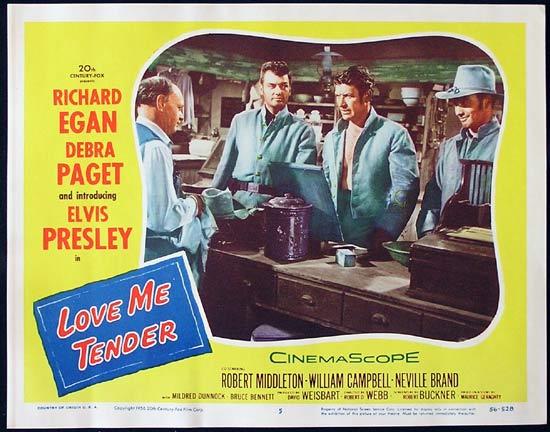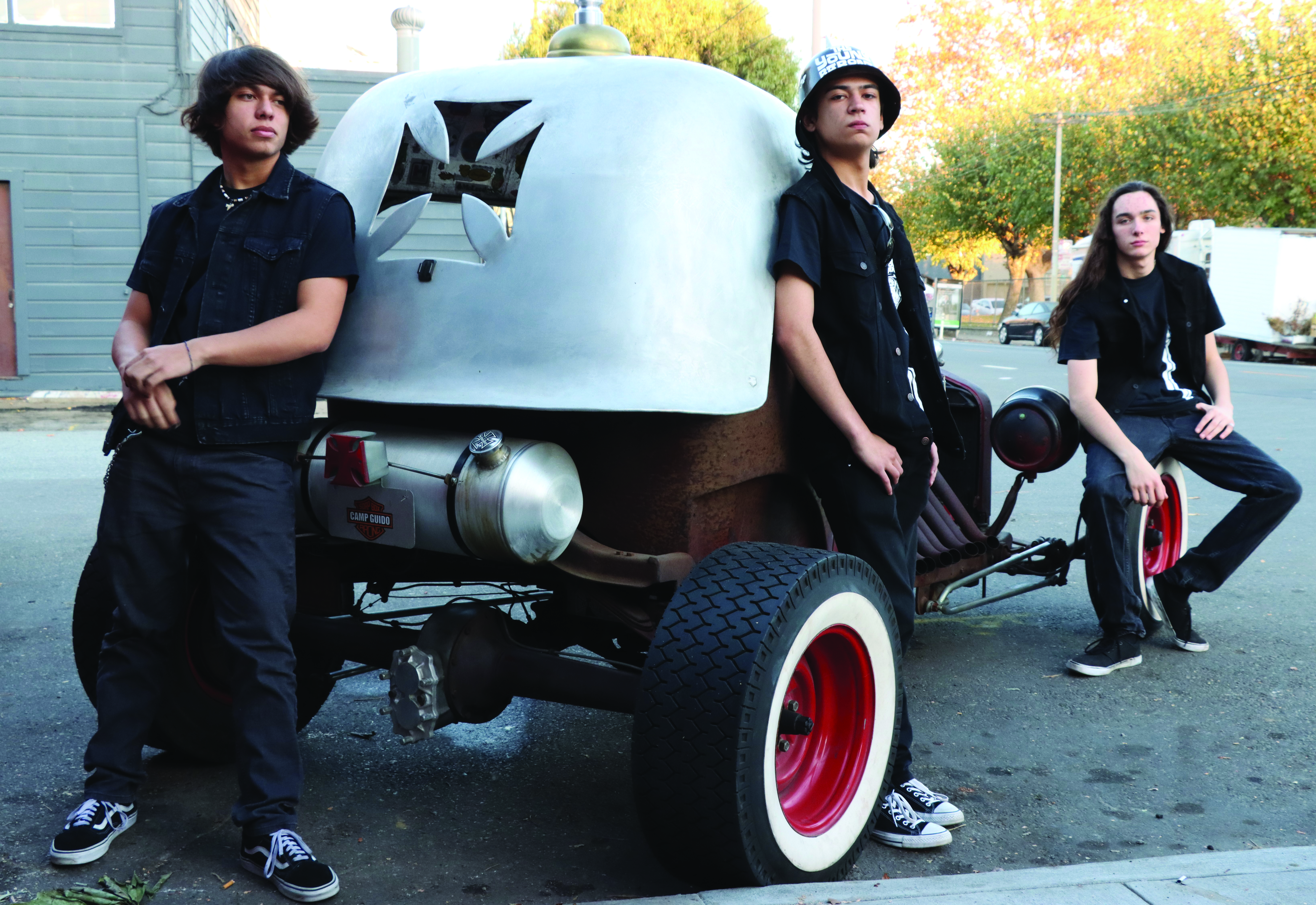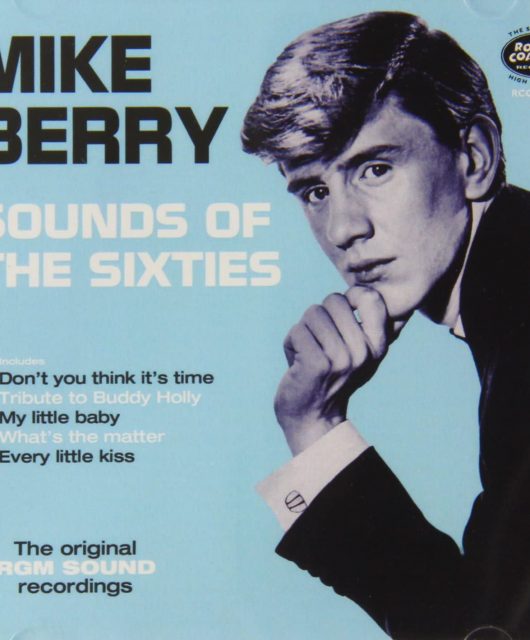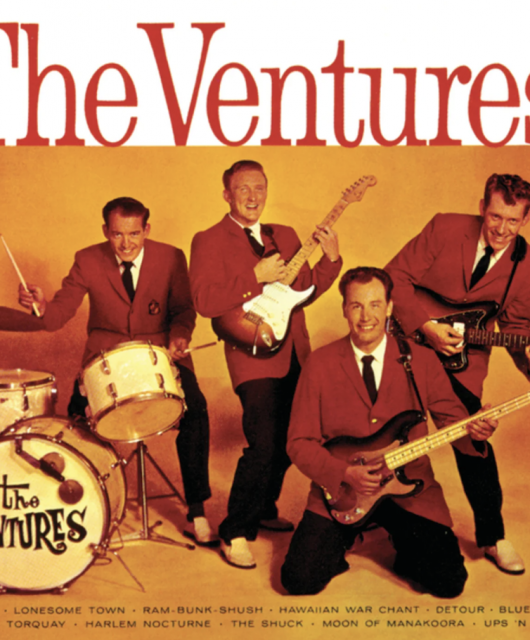From his early roles as the swivel-hipped bad boy through to the family-friendly star he became, Elvis lived his boyhood dream of movie stardom. We examine a prolific career of highs and lows… By Douglas McPherson
It’s tempting to divide Elvis’ career into three phases: the rock’n’roll years of the 1950s, the movie years of the 60s and the Las Vegas years of the 70s. But the reality is more complicated.
The King of Rock’n’Roll made his first film in 1956, the same year as his national breakthrough as a singer with Heartbreak Hotel. And some of his most famous music came out of his movies. Who could forget his inimitable dance sequence to the title song of Jailhouse Rock? It’s one of the defining moments of his career. In fact, it’s a defining image of rock’n’roll.
With Elvis never touring outside the USA (bar five performances in Canada), it was his movies that took his music around the world. His international fans may have heard his songs on the radio, but without the films they’d never have seen his hip-shaking gyrations or witnessed the explosive charisma of the man on stage – and his ability to mesmerise visually is at least half of his appeal.
Then there’s the fact that Presley’s movies provided feel-good entertainment in their own right. His musical comedies and romances, sprinkled with action and adventure, can be enjoyed by children, teens and parents. They broadened his audience beyond the teenagers who had originally gone wild for rock’n’roll and introduced Elvis to new generations of fans that his fellow original rockers couldn’t begin to reach.
During the 60s, when teenage tastes in music were rapidly moving on to Merseybeat, psychedelia and beyond, it was the movies that kept Elvis’ career alive. Without his more than 30 big-screen outings, it’s unlikely that Presley would have the vast global following that he has today.
Presley always wanted to be an actor. As a cinema usher in his youth, he admired the work of Marlon Brando, Tony Curtis and James Dean. His manager Colonel Tom Parker, meanwhile, immediately recognised the potential to cross-promote Presley’s movies and soundtrack albums.
In March 1956, while his first RCA single Heartbreak Hotel was still climbing the charts, Presley auditioned for Hal Wallis, the producer of big-screen classics Casablanca and The Maltese Falcon. His audition included reading from the yet-to-be-released film The Rainmaker and lip-syncing to Blue Suede Shoes.
Wallis’ partner Joe Hazen opined: “As a straight actor, the guy has great potential,” while screenwriter Allan Weiss said of the musical number: “Electricity bounced off the walls of the soundstage.”
Presley announced in an interview soon afterwards that he’d be making his screen bow in The Rainmaker with Burt Lancaster and Katherine Hepburn. In the event, however, Wallis loaned Presley to 20th Century Fox who tested the water by giving Presley third billing as Richard Egan’s hot-headed younger brother in a black and white Civil War-era western originally to be called The Reno Brothers. By the time of the film’s release, Elvis’ fame had grown exponentially and the movie was renamed Love Me Tender, to reflect the record-breaking advance sales of the ballad Presley sang in the flick.
The emphatic success of Love Me Tender led Wallis to make Presley’s second motion picture, Loving You, a shameless star vehicle for the rock’n’roller. Hitting the screen in blazing Technicolor, the first ‘real’ Elvis movie was almost autobiographical in its portrayal of a truck driver plucked from obscurity and groomed for stardom by an unscrupulous manager.
In particular, Presley’s on-screen handler, Glenda Markle (played by Lizabeth Scott), was closely modelled on Colonel Parker, down to her 50% cut of his earnings and the way she manufactures controversy to generate publicity.
The more time that has passed, and the more that we’ve learned about Presley and Parker, the more on the nose Hal Kanter’s script now seems: “That’s how you’re selling me, ain’t it?” Elvis snarls in one scene. “A monkey in a zoo!”
In Presley’s late-50s films, the intention was clearly to establish him in the angry young man mould of a new James Dean. It was a role he inhabited to perfection as Vince Everett in Jailhouse Rock. In one of the best scenes, the brooding rocker is a fish out of water at a high society party where a group of middle-aged people are discussing jazz in intellectual terms. When they ask his opinion he blurts with a hot-headed mix of bafflement, embarrassment and fury, “I don’t know what the hell you’re talking about!”
A moment later, on the street outside, he gives the heroine a rough kiss. “How dare you think such cheap tactics would work with me!” she protests. “That ain’t tactics, honey,” Elvis’ lip curls into its iconic sneer, “that’s just the beast in me.”
At a time when rock’n’roll, and Presley as its figurehead, were seen as a threat to civilisation, his portrayal of a singer with a conviction for manslaughter did nothing to allay the fears of polite society – in fact, the opposite was true. “Why a popular teen-age idol like Presley and the contemporary musical rage of rock’n’roll must be associated with crime, greed, profanity, vulgarity and brutality is beyond imagination,” huffed the Los Angeles Times.
After his return from the army, Presley cultivated a new, family-friendly image in G.I. Blues. This wholesome, unthreatening romantic comedy was a complete contrast to the noir-ish Jailhouse Rock and set the tone for most of the rest of the movies that he would make.
That’s not to say that Elvis wasn’t given the chance to tackle more dramatic fare in the violent western Flaming Star and the dark coming-of-age story Wild In The Country, both of which had hardly any music and would have worked perfectly well without any songs had anyone else been cast as lead.
But although Presley delivered committed performances, both pictures did poor business at the box office compared with his upbeat musicals like Blue Hawaii.
The message from cinemagoers was clear: the fans wanted breezy romances and comedies with lots of musical numbers – and Presley’s producers were happy to give it to them. A magic formula was quickly established: put Presley in a colourful, exotic location, surround him with attractive women, and give him plenty of songs to sing.
There’s no denying that the golden goose was occasionally exploited with a cynical disregard for quality. Almost two thirds of the entire budget of Tickle Me went on Presley’s fee, and the lack of money that remained showed in the cheap, artificial-looking sets.
Although Presley’s later movies are often derided as formulaic travelogues, a lot of the criticism must be attributed to snobbery. Many music critics would have liked Elvis to remain forever the edgy rockabilly cat of the 50s, forgetting that nobody can remain edgy for long in a world of ever-changing fashion.
As Presley’s character actually said in Jailhouse Rock: “The music changes every six months and you’ve got to change with it.”
Elvis endured as a singer because he possessed more than shock value. He could deliver a romantic ballad or comic number with equal class. He was an all-round family entertainer, but that’s not something seen as ‘cool’.
Similarly, ‘serious’ movies tend to get rated more highly than light entertainment, but there’s nothing wrong with feel-good escapism. Taken as the lighthearted popcorn-crunchers they were intended to be, most of Presley’s movies remain well-written, well-acted and handsomely staged examples of their type.
More than half a century after they were made, Viva Las Vegas, Roustabout, It Happened At The World’s Fair, Kid Galahad and many more still look fresh and will keep you smiling from beginning to end – which is more than can be said of many movies of the same vintage.
A surprising anomaly at the tail end of Presley’s screen career was Charro!, a spaghetti-style western in which Elvis finally got to do what he’d always wanted to: make it to the end of a movie without singing a single song (except the stirring theme song, which plays over the movie’s opening titles).
Unfortunately, the film’s violence was defanged and some female nudity removed to preserve Presley’s family-friendly image. And although he looked good in a beard, both he and the film lacked the sweat and grit of Clint Eastwood, who had turned down the role.
Many of his fans were probably relieved to get back to more familiar territory in The Trouble With Girls.
Was Elvis a great actor? It’s fair to say that his ability to portray a broad range of emotions, or a wide range of characters, was seldom tested.
The nature of making musicals in which he was required to break into song at frequent intervals meant Elvis was nearly always cast as a character who was at least a part-time singer: a racing driver who sang at night, a soldier who sang, a scuba diver who sang… Sometimes he just played a singer!
The films, after all, were primarily showcases for Elvis, the musical entertainer. His fans came to see him look and sound like Elvis. For the most part he was expected to play only a minor variation on himself or to play up his image as a brooding bad boy or romantic heartthrob.
The critics sometimes focused on his lack of facial expressions, his flawless features as immobile as his hair.
What Presley had, however, was screen presence to kill for. The camera loved him. He looked fantastic from every angle in every shot and he lit up every scene. He might have been playing himself, but he was good at it.
It goes without saying that Presley’s musical numbers are electrifying, but even in the talking parts it is impossible to take your eyes off him. In Jailhouse Rock and King Creole, he knew how to look dangerous. His angry sneers drip menace.
In his later films, however, Presley found his forte in comedy. He was a brilliant comic actor and whenever there’s a funny line to deliver, he nails it. In Double Trouble, for example, his British love interest asks him if he has any ‘biccies’. “Not that I know of,” our hero shoots back, defensively.
According to the old showbiz adage, you should never work with animals or children, but Presley turned in two of his funniest performances when his character was reluctantly forced to look after a crying baby in G.I. Blues and a seven-year-old girl in It Happened At The World’s Fair. As well as some laugh-out-loud moments of pure slapstick, the charm and warmth he exudes is off the scale.
It Happened At The World’s Fair actually includes one of Presley’s finest bits of acting – in which he doesn’t say a word. While his ballad They Remind Me Too Much Of You plays in the background, we watch him ride a monorail at night, while thinking about the girl he has fallen for. Although he doesn’t utter a word and barely shifts in his seat, the flickering emotions on his face completely convey his feelings in a sequence that is nothing short of mesmerising.
His last dramatic picture, Change Of Habit, is intriguing in that although Presley had top billing for commercial reasons, he in fact played a supporting character, as he had in his film debut.
change of habit was conceived as a vehicle for Mary Tyler Moore who plays a nun torn between her love for Presley’s character and her devotion to the church.
Presley is great in the supporting role. The director tutored him in method acting and he clearly learned the lessons. His toned-down screen presence is naturalistic and, with a different, swept-forward hairstyle, we’re encouraged to see the inner city doctor he’s portraying, rather than Elvis, the rock’n’roll star.
Change Of Habit was made as part of a package deal with NBC alongside Presley’s iconic ’68 Comeback Special. The gritty urban street scenes and interiors give it the look of a TV movie, rather than a big-screen outing. It’s a more dramatically ambitious and socially aware story than anything else Presley had appeared in during the 60s, however, deftly tackling the issues of autism (it was only the second film ever to do so), racism, poverty and rape.
Presley’s final role teases us with the prospect of what he might have achieved had he continued as an actor, perhaps in television dramas or other supporting roles where the producer didn’t rely on him singing a lot and playing Elvis by another name in order to sell tickets.
It was the ’68 Comeback Special that got all the attention, though. It took Presley back to the top as a rock star, and with a return to the concert stage ushering in a new phase in his career, he put his acting days behind him.
Elvis’ final cinema appearances were as himself in the early-70s documentaries Elvis: That’s The Way It Is and Elvis On Tour, but we can be grateful for the 31 musicals, romances, comedies and melodramas that he left us.
Forever immortalised on celluloid, Elvis’ movies let him live on in his prime.






